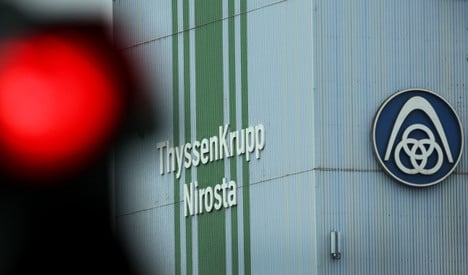“Overall the number of employees in administrative functions in the group worldwide is to be reduced by around 3,000 from its current level of around 15,000,” said ThyssenKrupp, which already announced more than 2,000 job cuts in its European steel operations earlier this year.
ThyssenKrupp, which is trying to recover from a string of recent scandals, said that heavy writedowns on new steel mills in Brazil and the United States pushed it back into the red in the second quarter.
Click here for The Local’s job page
The group, which runs its business year from October to September, booked a net loss of €89 million in the period from January to March, compared with a small profit of €29 million in the preceding three months.
On a year-on-year basis, ThyssenKrupp had booked net loss of €164 million in the second quarter a year earlier.
On an operating level, the industry giant – which alongside steel, also makes elevators, industrial plant technology, submarines and car parts – booked a loss of €4.0 million compared with profit of €305 million a year earlier.
Second-quarter revenues were down 10.7 percent at €9.102 billion and orders fell by 12.7 percent to €9.676 billion.
AFP/jcw



 Please whitelist us to continue reading.
Please whitelist us to continue reading.
Member comments